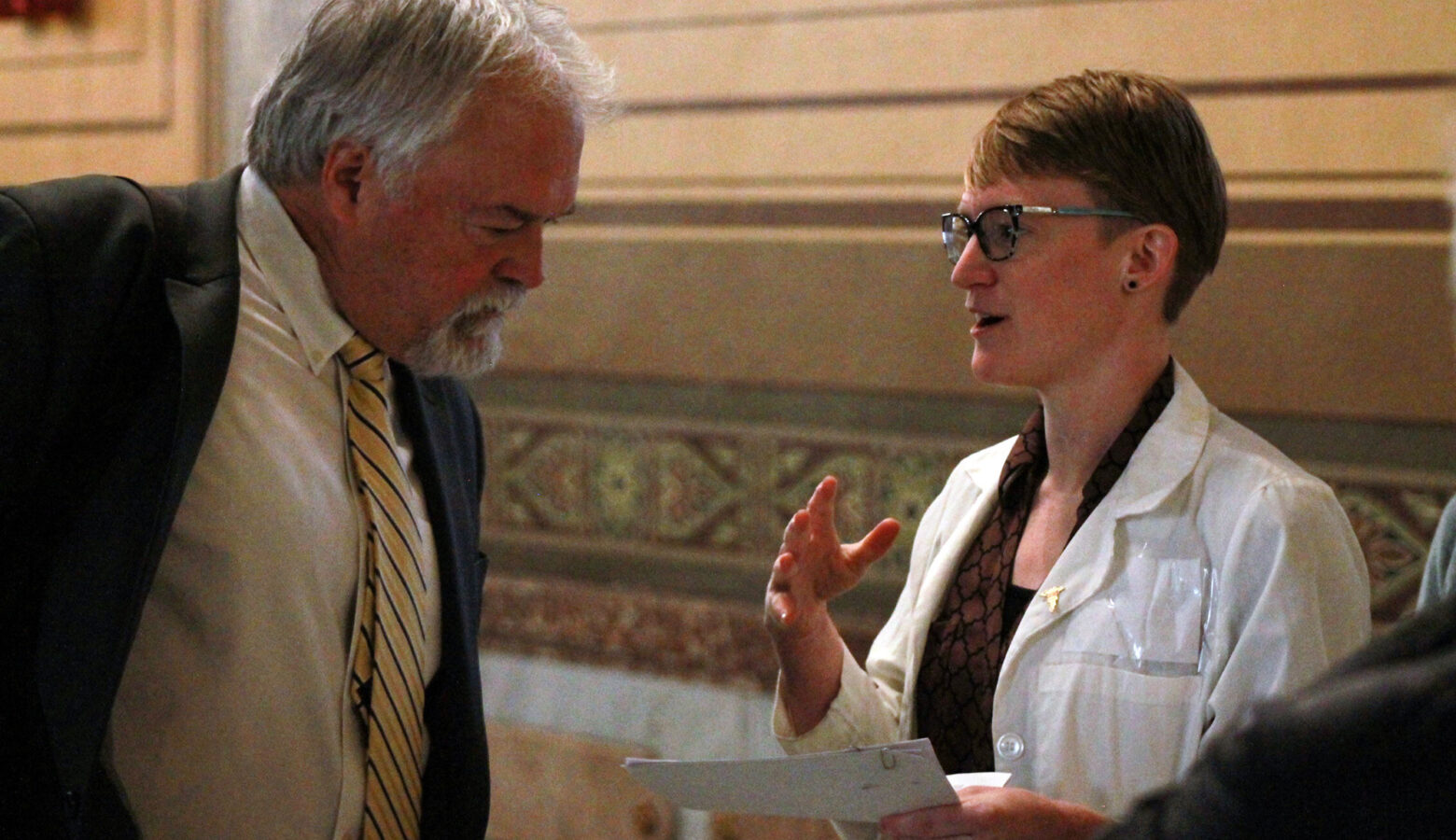More than 200 health care workers sign letter to halt gender-affirming care ban for minors

More than 200 health care professionals signed on to a letter asking for the chair of the House Public Health Committee to halt a bill banning medicinal and surgical gender-affirming care for transgender youth. Providers say Senate Bill 480 is harmful to trans youth and exacerbates Indiana’s health care worker shortage.
Health care professionals delivered the letter to Rep. Brad Barrett’s (R-Richmond) office on Monday.
One of the organizers, Dr. Alison Case, is a family medicine physician in Indianapolis. She said she’s heard from her colleagues who provide gender-affirming care to transgender youth that just the discussion about the bill is harmful to kids — making them worried about their futures and their lives in Indiana.
“So we’re worried about the bill because of the impact it’s going to have on youth,” Case said. “But also we’re speaking out because we’re tired of the legislature interfering in this patient-physician relationship.”
According to the Trevor Project’s 2022 National Survey on LGBTQ Youth Mental Health, nearly 1 in 5 transgender and nonbinary youth in Indiana attempted suicide in the past year. However, when provided gender-affirming care, these rates nearly mirror their cisgender counterparts.
READ MORE: What is gender-affirming care?
Join the conversation and sign up for the Indiana Two-Way. Text “Indiana” to 73224. Your comments and questions in response to our weekly text help us find the answers you need on statewide issues throughout the legislative session. And follow along with our bill tracker.
Gender-affirming care is health care that encompasses mental, social, medical and surgical care designed to treat gender dysphoria. There is national and international guidance on age-appropriate treatment.
In earlier debate on the ban, lawmakers and other public officials have repeated misinformation and the bill’s author, Sen. Tyler Johnson (R-Leo), said the bill is designed to protect kids from what they call “unproven and irreversible” treatments. Most major medical organizations and international guidance disagree with that claim.
Case said the bill would cut off life-saving care for transgender youth in Indiana and exacerbate Indiana’s health care worker shortage.
“This disturbing trend towards more interference between patients and physicians is certainly having an impact on physicians and going to have an impact,” she said.
Case said it’s not good for patients or physicians when the legislature decides how professionals should practice medicine. She pointed to public attacks from officials as an example of the harm these kinds of bills cause.
And Case said lawmakers are driving health care workers away from the state.
“Putting bills like this out there is not going to make that better, it’s going to make it worse,” Case said.
Before the group was able to deliver their letter to the chair’s office, the Public Health Committee scheduled a hearing on the ban for Tuesday morning.
Lauren is our digital editor. Contact her at lchapman@wfyi.org or follow her on Twitter at @laurenechapman_.


